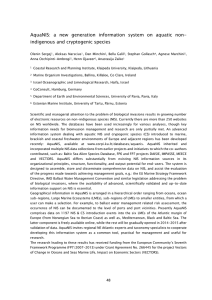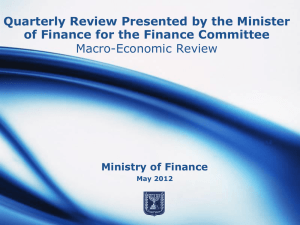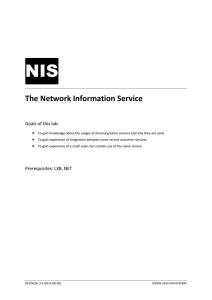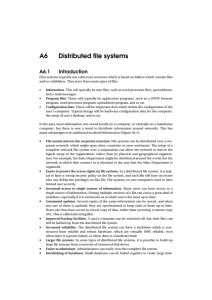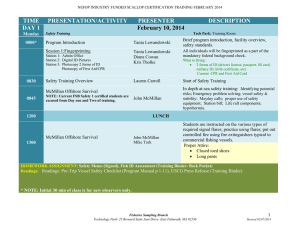Argopecten irradians Huang, Q. De Troch, M.
advertisement
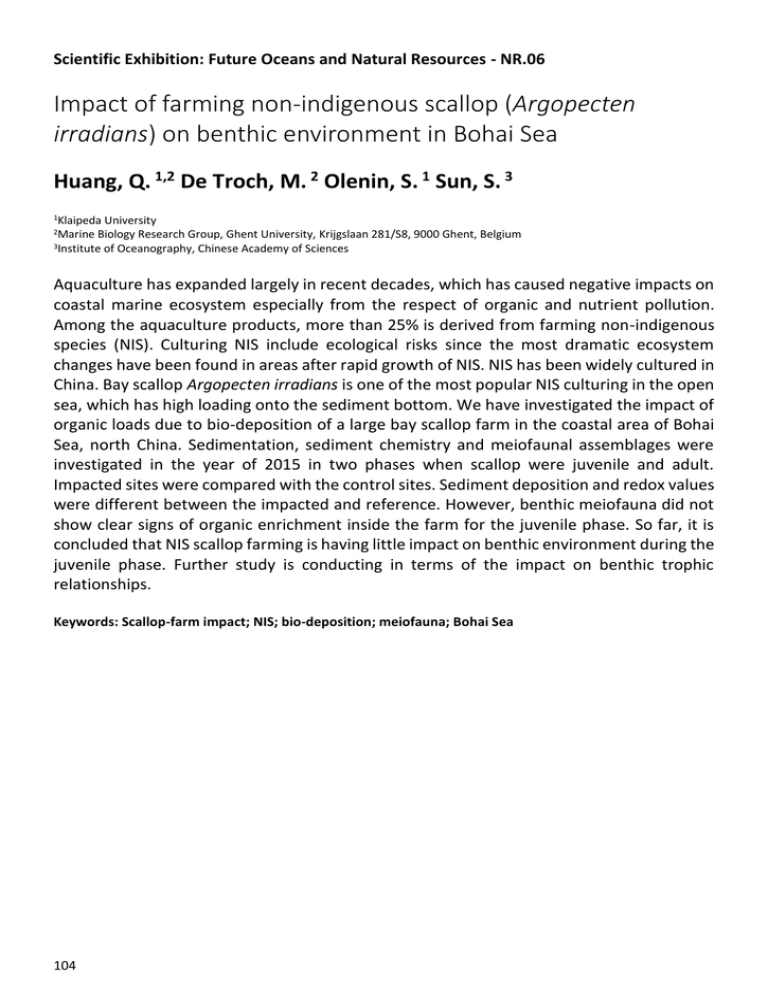
Scientific Exhibition: Future Oceans and Natural Resources - NR.06 Impact of farming non-indigenous scallop (Argopecten irradians) on benthic environment in Bohai Sea Huang, Q. 1,2 De Troch, M. 2 Olenin, S. 1 Sun, S. 3 1Klaipeda University Biology Research Group, Ghent University, Krijgslaan 281/S8, 9000 Ghent, Belgium 3Institute of Oceanography, Chinese Academy of Sciences 2Marine Aquaculture has expanded largely in recent decades, which has caused negative impacts on coastal marine ecosystem especially from the respect of organic and nutrient pollution. Among the aquaculture products, more than 25% is derived from farming non-indigenous species (NIS). Culturing NIS include ecological risks since the most dramatic ecosystem changes have been found in areas after rapid growth of NIS. NIS has been widely cultured in China. Bay scallop Argopecten irradians is one of the most popular NIS culturing in the open sea, which has high loading onto the sediment bottom. We have investigated the impact of organic loads due to bio-deposition of a large bay scallop farm in the coastal area of Bohai Sea, north China. Sedimentation, sediment chemistry and meiofaunal assemblages were investigated in the year of 2015 in two phases when scallop were juvenile and adult. Impacted sites were compared with the control sites. Sediment deposition and redox values were different between the impacted and reference. However, benthic meiofauna did not show clear signs of organic enrichment inside the farm for the juvenile phase. So far, it is concluded that NIS scallop farming is having little impact on benthic environment during the juvenile phase. Further study is conducting in terms of the impact on benthic trophic relationships. Keywords: Scallop-farm impact; NIS; bio-deposition; meiofauna; Bohai Sea 104

